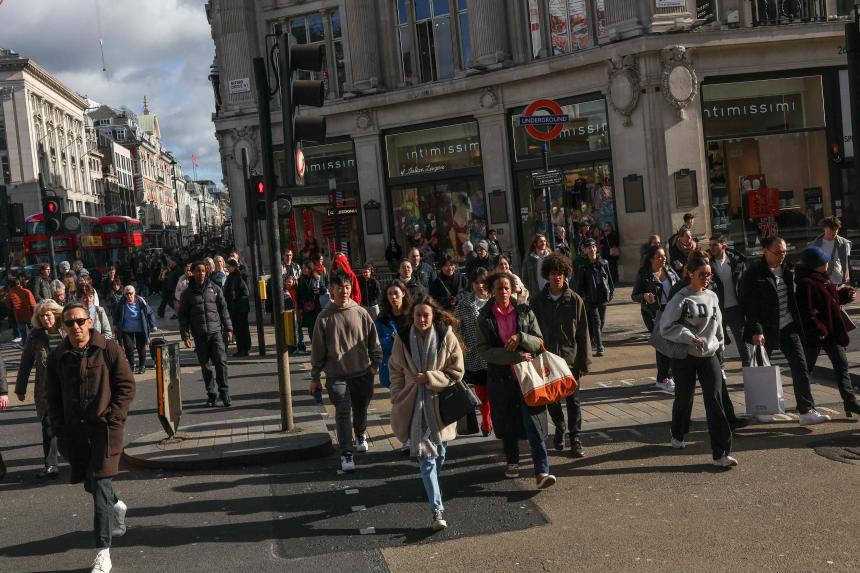LONDON - Britain’s economy returned to growth at the start of 2024, offering some relief to Prime Minister Rishi Sunak ahead of an election expected this year, after it entered a shallow recession in the second half of 2023, official data showed.
British gross domestic product (GDP) grew by 0.2 per cent month on month in January – boosted by a rebound in retailing and house building – after a fall of 0.1 per cent in December, in line with economists’ expectations in a Reuters poll.
“The economy picked up in January with strong growth in retail and wholesaling,” said Ms Liz McKeown from the Office for National Statistics (ONS).
“Construction also performed well, with house builders having a good month, having been subdued for much of the last year.”
However, it is too early to know if the economy is no longer in recession.
Gross domestic product shrank by 0.3 per cent in the final quarter of 2023 and 0.1 per cent in the quarter before – meeting the technical definition of recession widely used in Europe.
Britain’s economy has been very sluggish since its initial recovery from the Covid-19 pandemic, beset by a surge in the cost of energy imports following Russia’s invasion of Ukraine and, more recently, by high Bank of England interest rates.
But with inflation at 4 per cent in January, down from double-digit rates in much of 2023, and forecast to return to its 2 per cent target soon, the squeeze on household spending is easing and the central bank is starting to consider when to cut interest rates.
Data on March 13 showed that GDP in January was 0.3 per cent lower than a year earlier and shrank by 0.1 per cent in the three months to January, both in line with economists’ forecasts.
British Finance Minister Jeremy Hunt said: “While the last few years have been tough, today’s numbers show we are making progress in growing the economy.”
Ms Rachel Reeves, the opposition Labour Party’s would-be finance minister, said the Conservatives under Mr Sunak and his predecessors had presided over “14 years of economic decline” and were to blame for the most recent recession.
Labour is running far ahead of the Conservatives in opinion polls with an election expected in the second half of 2024. The opposition party is now seen as more trusted to run the economy than the Conservatives, according to some polls.
The government’s Office for Budget Responsibility last week forecast an expansion of 0.8 per cent in 2024, more than the Bank of England’s projection in February of around 0.25 per cent growth.
Business surveys have pointed to a pickup with purchasing managers’ index data rising to a nine-month high in February. Previously published ONS data for January showed the biggest retail sales jump since Covid-19 restrictions were lifted in 2021.
March 13’s figures showed that construction output – which is often volatile – jumped by 1.1 per cent in January, its biggest monthly rise since June and led by a 2.6 per cent rise in private-sector house-building, which had been depressed by high interest rates.
Ms Ruth Gregory, deputy chief UK economist at Capital Economics, said the data may not move the dial much for the Bank of England.
“A 0.1 per cent quarter-on-quarter rise in Q1 would match the Bank’s forecast and with domestic inflationary pressures fading, we think a rate cut this summer – perhaps in June – is still the most likely outcome,” Ms Gregory said. REUTERS

